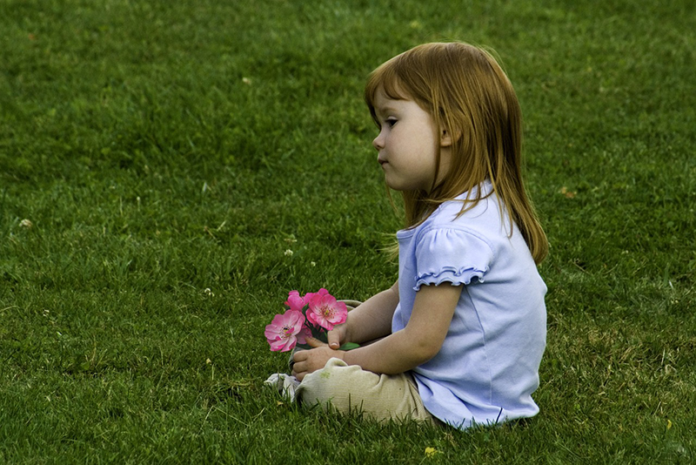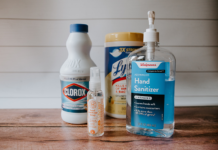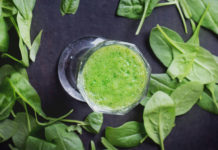It used to be fashionable to have a lush, green, close-cropped lawn surrounding your entire house. Some neighborhood associations would have you believe it still is. The truth is, that the lawn chemicals that go with a monochromatic expanse of grass might actually harm you and your children.
More and more people are forgoing the traditional lawn in favor of more natural and healthier choices. The drought-prone western U.S. seemed to embrace the shift first, but with growing concerns about harmful chemicals, biodiversity, and sustainability, people in all regions are reconsidering. Some replace vast expanses of grass with native plant species. Or they opt for large gardens filled with edible or non-edible plants.
Here are four reasons to tear out your lawn, or reduce its footprint significantly.
Lawn Chemicals Can Literally Kill You
Historically, Americans have liberally dosed their yards with pesticides and fertilizers. Now, we know better. In 2015, The Lancet published research on glyphosate, an ingredient in common household herbicides. The most well-known product containing glyphosate is Roundup, a product about which I and others have repeatedly issued warnings. The researchers then classified it as a “probable carcinogen.”
Since that time, the legal system has upheld the claim that Roundup causes cancer, including non-Hodgkins lymphoma. A jury in California awarded one couple $2 billion, acknowledging that their longtime use of Roundup lawn chemicals contributed to their cancer. Theirs is just one case where Roundup’s parent company, Beyer, was forced to pay damages to cancer victims.
Pesticides also introduce toxic chemicals into your yard. After all, they are designed to kill living things. Even after they wash away from your grass, they flow into the water table and the air.
Then, there’s fertilizer. The widely used two, 4-D is found in products like Scotts Green Sweep, Ortho Weed B Gon, and others. It alters the hormones of “weeds,” sparing the grass. The National Institute of Health Sciences lists it as a suspected endocrine disrupter. That means it may affect hormones in humans. In the shorter term, contact can cause eye irritation, muscle stiffness, nausea, and vomiting.
Caring For a Lawn May Harm Your Lungs
As if the lawn chemicals aren’t enough, consider the emissions from your powered lawn tools. Two-stroke engines, like those on leaf blowers and lawnmowers, can produce even more harmful emissions than automobiles.
The American Lung Association advises that mowing contributes to ozone pollution. Ozone pollution, which we sometimes term “smog,” attacks lung tissue. The ALA says, “Lawnmower exhaust and gasoline vapors contain VOCs that are key to ozone formation in the presence of heat and sun.” Children, the elderly, and people with lung issues are especially at risk.
Doctors also advise against mowing the lawn if you have asthma or allergies. Simply stirring up the grass, dirt, pollen, and mold can cause an attack.
Your Kids Will Benefit from Gardening
We’ve talked about some pretty dark subjects here, so let’s focus on something positive. Instead of a lawn all around the house, you could turn large swathes into gardens. And gardening is fantastic fun and exercise for all ages!
Many families will say they keep a traditional lawn so that the kids have a place to play. Let’s be honest… how much time do they actually spend in the yard? Gardening gives them hands-on activity with tangible results. Physically, gardening promotes cardiovascular health and bending and stretching.
Even better, it provides a wonderful bonding experience for kids and parents. If that’s not enough, growing your own produce instills early lessons about healthful eating. Kids will take pride in raising their own food. They’re often willing to try things they wouldn’t otherwise. And veggies you eat straight from the garden simply taste better than something that’s been shipped thousands of miles and sat under fluorescent lights in the grocery store.
Bees Desperately Need Habitat
Another great bonus of adding more variety of plants to your yard, particularly native, flowering plants, is that you attract pollinators. Check online or talk to someone at a local nursery for recommendations. Then turn your yard into a welcoming space for bees, butterflies, and other important wildlife.
Bees, in particular, are in big trouble. Beekeepers and scientists are sounding the alarm about massive bee die-offs. Without bees, we lose a major chunk of our food supply. Making the wrong choices for your yard and garden might actually harm the bees. So take a proactive stance and plant the things they need for habitat and food.
When you start to grow more natural things, you will find that the plants and animals work together as a natural ecosystem. You will need fewer of those lawn chemicals we discussed and less water. You can start small, experimenting with one section, or go big and tear it all out. If your neighbors look shocked, just explain the many good reasons to go lawn-less. And, if you live in a community with an HOA that restricts these things, do your research and build the case for change. You might find that other neighbors want to do the same but just haven’t thought they could make a difference.








